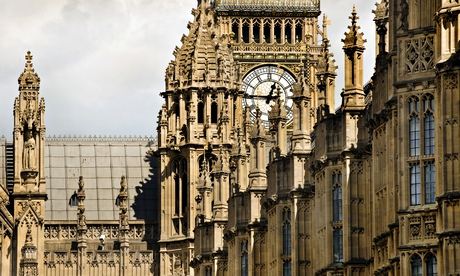As Britain draws nearer to the 2015 general election, three business leaders share their views on crucial issues

John Longworth, director general of the British Chambers of Commerce
Are you worried about the Conservatives and the European Union?No. We support the prime minister’s position on renegotiation and holding a referendum. The majority of our members believe that a renegotiated relationship with the EU, rather than further integration or outright withdrawal, will deliver the most economic benefit for the UK. Future safeguards in relation to the eurozone and reforms that make it easier to do business in Europe would improve the prospects for growth not just here in the UK but across the continent.
What can Labour do to win over the business community between now and next May?
Labour must demonstrate economic competency and an understanding of business and wealth creation at the highest level of the party. Short-term political expediency creates uncertainty for business and what we need to see from the opposition is long-term strategic vision and investment.
How worried are you about the uncertainty surrounding next year’s vote?
The election will be the most uncertain and enlivening in politics since 1979. It is an opportunity to put Britain on track for long-term great growth. Any incoming government will have the opportunity to define a future direction that stimulates growth and prosperity as never before.
Simon Walker, director general of the Institute of Directors
Are you worried about the Conservatives and the European Union?IoD members support continuing membership of the EU. Only 6% say they would vote to leave right now. They see clear economic benefits to membership – particularly for small and medium-sized exporters. Over 60% think access to the single market is important to their business. They are also clear that reform is vital. The majority think EU interventions in social and unemployment matters have been unhelpful, however. Attempts to harmonise employment practice across different business cultures create expense and red tape and, ultimately, cost jobs.
What can Labour do to win over the business community between now and next May?
There are members of the Labour party who understand the challenges involved in setting up or running a company, but we would like to see a greater recognition of the vital role business plays in creating jobs and prosperity. Without the private sector, there would be few government revenues to pay for health, education and welfare. We recognise that many people are not feeling the economic recovery in their pockets, but the only route to sustainable growth is through improved productivity. Whoever takes power next summer must acknowledge that increasing the burden of tax or regulation will only make it harder for businesses to take on more staff and increase pay.
How worried are you about the uncertainty surrounding next year’s vote?
The outcome may be uncertain, but businesses have weathered general elections before. Whatever the result, they will continue to concentrate on improving their products and growing sales. Business leaders have to be very resilient to cope with the interventions of politicians, who are consistent only in their inconsistency.
John Cridland, director general of the CBI
Are you worried about the Conservatives and the European Union?I am concerned that positive messages about the benefits of the EU are not being heard. The message on the free movement of people comes across in other European capitals as dogmatic, when the reform agenda is best served by a pragmatic approach. I think there is a successful reform agenda that could be sold to the British people. We need more of what Europe does well and less of what it does badly.
What can Labour do to win over the business community between now and next May?
It needs to explain what it thinks about markets and why it thinks it needs to intervene in markets. There is a sense that the Labour party in particular but politicians more generally are more inclined to prejudge what a successful market is. Ed Miliband needs to show how a Labour party in government would help markets prosper without interfering in market outcomes. That’s why business has doubts about Labour’s credentials.
How worried are you about the uncertainty surrounding next year’s vote?
It starts to feel like the 1992 election, when the economy was improving but the politics were tricky. The economy is in a good position but there is a cocktail of political risks. Instead of a general election where you have the choice between two parties, you have a situation where five parties are in play. CBI members think globally and at the start of the year I was worried about China and Japan. I hadn’t got a focus on Ukraine and I had never heard about Islamic State. That cocktail of risks is challenging for business.

No comments:
Post a Comment